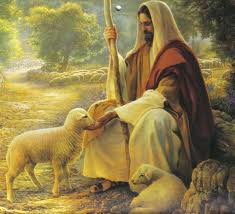EXEGESIS PAPER
ON
LUKE: 18:9-30
BY
DEAN SHINAVER
THIS IS A REQUIREMENT OF AMRIDGE UNIVERSITY OF THE GOSPEL OF LUKE, DR. RODNEY CLOUD TO FULFILL A MASTER DEGREE IN DIVINITY, FALL 2009, OCTORBER 25, 2009
CONTENTS
INTRODUCTION 3
PEOPLE IN THE PASSAGE 4
THEME OF THE PASSAGE 5
THE PURPOSE OF THE PASSAGE 6
BIBLIOGRAPHY 11
INTRODUCTION
Introduction: Each of these stories answers, in some way, the question “Who will be
accepted by God and received into his kingdom?”
Unlike either of the other Synoptic Gospels, Luke has sought to express the humanity of
Christ in the portrayal of His life. Luke has sought to achieve this by emphasizing the
prayer life of Jesus, and as a result, there are seven accounts of Jesus praying which are
peculiar to Luke. The New Testament concept of prayer is "the uplifting of the heart to
God with whatever motive", a form of worship encompassing "all attitudes of the human
spirit". It is perhaps most simply defined as "communion with God." What is signified
therefore, is that though Jesus is God, in His incarnate state He is entirely dependent upon
His Father in order to fulfill God's purpose for His life. Moreover, Jesus as the perfect
man needed to pray, how much more do we, in our imperfection?
I. People in the passage. (v.9)
1. The audiences who were sure of their own righteousness. The Pharisees in the story are
the specific targets in Jesus' audiences.
2. Children (v.15-17) Children are characterized by certain qualities (e.g., trust, openness, dependant) and not by certain others (e.g., self-sufficiency). The children here are to be equated with the tax collector of the previous story: trusting in another rather than self-reliant. The true believer shares these qualities. Children often know and accept their limitations but sometimes, as they grow, they begin to think they can do everything by themselves. 3. The disciples “They began to stop the little children, and tell off the parents in no uncertain terms. The word translated "rebuked" is Greek epitimao, "to express strong disapproval of someone, 'rebuke, reprove, censure,' also 'speak seriously, warn' in order to prevent an action or bring one to an end."[1] 3. The Jewish leader (the Rich man) v. 18-30)
The Jewish leader has asked Jesus a question without considering his words. Jesus wants
to know, “If you’re calling me good and only God is good, then are you equating me with
God?” In pointing this out, Jesus is not only emphasizing his own deity, but is making
clear the standard of righteousness by which God judges: his own holiness and
righteousness. Someone who is not as holy as God has no hope of eternal life.
II. Theme of the passage. 1. Prayer: the parables together do more than remind us that prayer is a theme in Luke- Acts; they show us why prayer is a theme. For Luke, prayer is faith in action. Prayer is not an optional exercise in piety, carried out to demonstrate one's relationship with God. It is that relationship with God. The way one prays therefore reveals that relationship. “If the disciples do not "cry out day and night" to the Lord, then they in fact do not have faith, for that is what faith does. Similarly, if prayer is self-assertion before god, then it cannot be answered by God's gift of righteousness; possession and gift cancel each other.”[2] In his Gospel Luke has tried to impress upon the reader the importance of prayer by demonstrating the attitude of Jesus to prayer and the frequency with which He prayed. What we see is that Jesus, as the expression of perfect humanity, lived a life totally surrendered to the 'purposes' of His Father and was only effective in His ministry because He sought the will of God in all the areas of His life. Likewise, the Christian life is to be a life of prayer, founded upon the Father-Son relationship that God has established through Christ. We are to trust him in the assurance that he will provide the answer to all our Supplications. 2. Eternal life This passage about a rich young man has challenged and puzzled Bible teachers for many years. You see, hundreds of times the Bible says that the way to receiving eternal life is by believing in Jesus for it. The way to heaven is by faith in Christ, not by works, so that no one can boast.
III. The purpose of the passage. 1. Humility. Acceptance with God is based on who God is and what he has done, not on who you are
or what you have done. Humility and a recognition of God's grace and mercy allowing us
to approach are appropriate. We can only enter the kingdom when we come depending
upon Jesus and not ourselves.
The Pharisee and tax collector contrast pride and humility. The blessing of the little children shows God's openness to all. The rich man shows how difficult it is for the rich to turn to God, while the disciples are the positive example of giving everything over to service for God. In each case, what is commended is putting everything into the Father's care. Such simple, humble faith is what God desires. The Parable of the Pharisee and Tax Collector (18:9-14) “This parable, like the previous one, deals with prayer, but here the issue is the content of the heart as one prays. The parable is one of contrast and is unique to Luke. It contains common Lukan heroes and villains. The hero is the tax collector; the villain is the Pharisee. Humility is the exalted virtue. The parable serves as a rebuke, since it is told to some who were confident of their own righteousness and looked down on everybody else. The Pharisees are the specific targets in Jesus' audience (Jeremias 1972:142-43).”[3] The two prayers also make a contrast. The Pharisee is sure that he is a blessing to God. He makes no request of God, he offers no honor to God. In contrast, the tax collector senses that he approaches a holy God, a great and unique being. This man comes with timidity, from a distance, not lifting his eyes to heaven. Both practices indicate an awareness of one's humble position before God. The tax collector knows he is a sinner; the Pharisee is confident of his own righteousness. The contrast could not be greater. Here is another brilliant use of literary space and contrast by Jesus. “Greek key word in this passage: Luke precedes the parable by naming its intended target. The first characteristic is "confident of their own righteousness." The word translated "confident" (NIV) or "trusting in" (KJV) is Greek peitho, which can mean variously, "convince, persuade, depend on, trust in, be convinced, certain." And "Righteousness" is Greek dikaios, "pertaining to being in accordance with high standards of rectitude, 'upright, just, fair.'[4] 2. Trusting All to the Father“A little child is totally helpless and is dependent upon his parents for care. A little child has absolute confidence in his parents. In Luke, at least, the incident of little children coming to Jesus is squarely in the context of humility. As the situation comes tolight like this, what the Lord meant also comes to light. The Lord was trying to overturnfrom the roots the thoughts of such disciples as this. “Let the children come to me. Do nothinder them. The kingdom of God is people like this. I say to you clearly. Unless you arepeople who accept the kingdom of God as a child, you will never be able to enter in it.”[5]this episode about children emphasizes who is really upright in the sight of God. Luke
reinforces the attitude that one must have to participate in the Reign of God. Jesus teaches
that we do not gain or merit God’s favor by our human achievements. Rather the Reign
of God is a pure gift. One is called to receive and participate in it.
“The Pharisees and religious teachers held that children could not be examples of the
upright because they were incapable of knowing the law. Children were often considered
insignificant, even burdens until they could work. To the contrary, Jesus uses the child as
a model for the kingdom.”[6]
The disciples were doing important things they were traveling with Jesus to the Holy
City, Jerusalem. They were ministering with Jesus. Most likely they had the same
attitudes as the Pharisees towards the children. They were seen as insignificant and not
worthy of Jesus’ attention.
Jesus makes it clear that not only does the kingdom belong to them but that they are
models for adults on how to accept the Reign of God. 3. No One Is Good, Except God AloneLuke places this event in the midst of a series of incidents and parables designed toindicate the character of discipleship.“And so, in this sincere young man's superficial way, he addresses Jesus as "goodteacher," a somewhat improper way to address a Rabbi. We don't see this expressionelsewhere in Rabbinical literature until the Fourth Century. The word "good" in bothverses 18 and 19 is Greek agathos, "pertaining to meeting a high standard of worth andmerit, 'good.'[7]A rich man can't understand anything else Jesus will tell him unless he grasps thatour relative standards of goodness are much, much different than God's absolutegoodness and God's standards of righteousness.“A rich man wants to earn everlasting life. He represents those who believe that salvation
is something on can merit by performing deeds. Jesus makes it clear that salvation is a
gift from God. Only God is truly good. The rich sees in Jesus a good man not unlike
himself. He does not see The Messiah, God’s son.”[8]
Jesus guides the rich man hoping to open his eyes. He refers the man to the
commandments but mentions only those regarding man’s relationship with man. He does
not mention the first three commandments from which all the following commandments
receive their meaning. The first three commandments proclaim that God is the
source of all life and salvation, worthy of all we are and have.
The rich man has kept the laws of God and felt himself entitled to salvation. He has kept
those commandments since he was a boy.
Jesus calls the rich man to the path of salvation. He summons the man to sell his
possessions, give the wealth to the poor and follow him. He stuns the man. The rich man
must make a decision towards the first steps into salvation or retain his wealth. In his
heart the man does not trust God’s way. He will not even share his wealth
with the poor. At the same time Jesus gives him a remarkable opportunity to become his
disciple. The man decides not to follow Jesus. He cannot put his faith in him. He hears
the call of God through Jesus. But he will not respond. He will not follow. He is
immobilized by his wealth. He goes away sad. Jesus response to the
man’s reaction: “How hard will be for the rich to go into the kingdom of God”
“Now it is the listeners and disciples turn to be stunned. “Who, then can be saved?” To
hem being wealthy was considered a great blessing. It could achieve almost anything.
Jesus points out that wealth can become an obstacle in the Christian life. But more
importantly, he clarifies that God can make all things possible.”[9] Jesus has taught his disciples about the importance of faithfulness with regard to money:"No servant can serve two masters. Either he will hate the one and love the other, or hewill be devoted to the one and despise the other. You cannot serve both God and Money"
Bibliography
Charles R. Erdman. The gospel of Luke, An exposition. Echo Library, January 2009
Darrell L. Bock. Luke (The NIV application commentary). Zondervan; Reprint Edition, February 1996
Frank Colborn. Luke’s notebook: Mediations on the Gospel. lulu.com, October, 2009
Howard I. Marshall, Ward W. Gasque. Gospel of Luke: A commentary on the Greek testament commentary. Wm. B. Eerdmans Publishing Company, November 1978
Jerome Kodell. Gospel According to Luke (Collegeville Bible commentary series), Liturgical Press, June 1982
Leon Morris. The Gospel According to Luke: An introduction and commentary (Tyndale New Testament commentaries). Wm. B. Eerdmans Publishing Company, 2007
Reiling J., Swellengrebel J.L. A handbook on the gospel of Luke. United Bible Societies, August 1993
Rudolf Steiner, Robert McDermott, Catherin E. Creeger. The gospel of compassion and love revealed. Steiner Book, July 2001
Marvin Pate. Luke Gospel Commentary (Moody Gospel commentary). Moody Publishers: 1ST edition , February, 1995
[1] Rudolf Steiner, Robert McDermott, Catherin E. Creeger. The gospel of compassion and love revealed. Steiner Book, July 2001 [2] Charles R. Erdman. The gospel of Luke, An exposition. Echo Library, January 2009 [3] Marvin Pate. Luke Gospel Commentary (Moody Gospel commentary). Moody Publishers: 1ST edition , February, 1995 [4] Howard I. Marshall, Ward W. Gasque. Gospel of Luke: A commentary on the Greek testament commentary. Wm. B. Eerdmans Publishing Company, November 1978
[5] Frank Colborn. Luke’s notebook: Mediations on the Gospel. lulu.com, October, 2009
[6] Leon Morris. The Gospel According to Luke: An introduction and commentary (Tyndale New Testament commentaries). Wm. B. Eerdmans Publishing Company, 2007
[7] Jerome Kodell. Gospel According to Luke (Collegeville Bible commentary series), Liturgical Press, June 1982 [8] Reiling J., Swellengrebel J.L. A handbook on the gospel of Luke. United Bible Societies, August 1993 [9] Darrell L. Bock. Luke (The NIV application commentary). Zondervan; Reprint Edition, February 1996
|











































